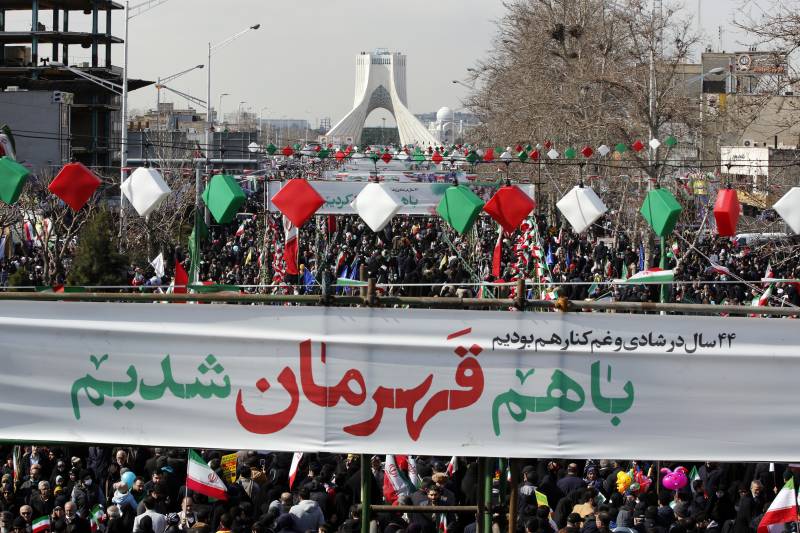Iranians celebrate 44th anniversary of Islamic revolution

Stay tuned with 24 News HD Android App

Tens of thousands of Iranians hit the streets in Tehran and other cities on Saturday to mark the 44th anniversary of the Islamic revolution, after months of anti-government protests.
For the past two years, the 1979 overthrow of the Western-backed shah was commemorated mainly in vehicles and on motorcycles due to Covid restrictions.
But this year, many flag-waving people travelled on foot to converge on the capital's iconic Azadi (Freedom) Square, despite chilly temperatures.
They chanted slogans including "Down with the US", "Down with Israel", "Down with the UK" and "Down with the traitor Al Saud", an AFP journalist said.
Sejjil ballistic missiles and Shahed 136 drones were on display around the square where President Ebrahim Raisi is expected to address the crowds later.
State television said the celebrations were held in 1,400 cities and towns across the country, airing footage of large rallies in Isfahan, Mashhad, Shiraz, and Tabriz.
People bore portraits of Iran's supreme leader Ayatollah Ali Khamenei as well as the late Ayatollah Ruhollah Khomeini, founder of the Islamic republic, and revered general Qasem Soleimani, killed in a US air strike on Baghdad airport in January 2020.
They also held placards reading "We stand to the end", "A united, strong and stable Iran" and "We obey the leader".
The celebrations mark the day that the shah's government fell 10 days after Shiite cleric Khomeini returned from exile and led the uprising in February 1979.
Shah Mohammad Reza Pahlavi had already fled Iran in January of that year, after months of protests against his rule.
This year's commemorations come with Iran gripped by nationwide protests since the September 16 death in custody of Mahsa Amini, a 22-year-old ethnic Kurd, who had been arrested for an alleged breach of the Islamic republic's dress rules for women.
Authorities say hundreds of people, including dozens of security personnel, have been killed during the protests which the authorities generally describe as "riots".
Thousands of Iranians, including public figures, journalists and lawyers, have been arrested but many have been released recently.
